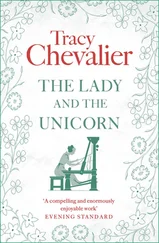Nikolai Leskov - The Lady Macbeth of the Mtsensk District
Здесь есть возможность читать онлайн «Nikolai Leskov - The Lady Macbeth of the Mtsensk District» — ознакомительный отрывок электронной книги совершенно бесплатно, а после прочтения отрывка купить полную версию. В некоторых случаях можно слушать аудио, скачать через торрент в формате fb2 и присутствует краткое содержание. Жанр: unrecognised, на английском языке. Описание произведения, (предисловие) а так же отзывы посетителей доступны на портале библиотеки ЛибКат.
- Название:The Lady Macbeth of the Mtsensk District
- Автор:
- Жанр:
- Год:неизвестен
- ISBN:нет данных
- Рейтинг книги:5 / 5. Голосов: 1
-
Избранное:Добавить в избранное
- Отзывы:
-
Ваша оценка:
- 100
- 1
- 2
- 3
- 4
- 5
The Lady Macbeth of the Mtsensk District: краткое содержание, описание и аннотация
Предлагаем к чтению аннотацию, описание, краткое содержание или предисловие (зависит от того, что написал сам автор книги «The Lady Macbeth of the Mtsensk District»). Если вы не нашли необходимую информацию о книге — напишите в комментариях, мы постараемся отыскать её.
The Lady Macbeth of the Mtsensk District — читать онлайн ознакомительный отрывок
Ниже представлен текст книги, разбитый по страницам. Система сохранения места последней прочитанной страницы, позволяет с удобством читать онлайн бесплатно книгу «The Lady Macbeth of the Mtsensk District», без необходимости каждый раз заново искать на чём Вы остановились. Поставьте закладку, и сможете в любой момент перейти на страницу, на которой закончили чтение.
Интервал:
Закладка:
Nikolai Leskov
The Lady Macbeth of the Mtsensk District
Published by

Books
- Advanced Digital Solutions & High-Quality eBook Formatting -
musaicumbooks@okpublishing.info
2020 OK Publishing
EAN 4064066394301
Table of Contents
I
II
III
IV
V
VI
VII
VIII
IX
X
XI
XII
XIII
XIV
XV
I
Table of Contents
In our part of the country you sometimes meet people of whom, even many years after you have seen them, you are unable to think without a certain inward shudder. Such a character was the merchant's wife, Katerina Lvovna Izmaylova, who played the chief part in a terrible tragedy some time ago, and of whom the nobles of our district, adopting the light nickname somebody had given her, never spoke otherwise than as the Lady Macbeth of the Mzinsk District.
Katerina Lvovna was not really a beauty, but she was a woman of a very pleasing appearance. She was about twenty-four years of age; not very tall, but slim, with a neck that was like chiseled marble; she had soft round shoulders, firm breasts, a straight thin little nose, bright black eyes, a high white forehead, and black, almost blue black, hair. She came from Tuskar in the Kursk province and had married Izmaylov, a merchant of our place, not because she loved him or from any attraction towards him, but simply because he courted her, and she, being a poor girl, was not able to be too particular in making her choice of a husband. The firm of the Izmaylovs was one of the most considerable in our town; they dealt in wheaten flour, leased a large flour mill in the district, owned profitable fruit orchards not far from town, and in the town had a fine house. In a word, they were wealthy merchants. Their family was quite small. It consisted of her father-in-law, Boris Timofeich Izmaylov, a man of nearly eighty who had long been a widower; Zinovey Borisych Katerina Lvovna's husband, a man of over fifty; and Katerina Lvovna herself. Katerina Lvovna, who had now been married for five years, had no children. Zinovey Borisych had also no children from his first wife, with whom he had lived for twenty years before he became a widower and married Katerina Lvovna. He had thought and hoped that God would give him an heir by his second marriage to inherit his commercial name and fortune; but in this, too, he and Katerina Lvovna had no luck.
Not having children grieved Zinovey Borisych very much, and not only Zinovey Borisych, but also the old man Boris Timofeich, and it made even Katerina Lvovna herself very sad; first, because the immeasurable dullness of this secluded merchant's house, with its high fence and unchained watch-dogs, often made her feel so very melancholy that she almost went mad, and she would have been pleased, God knows how pleased, to have had a child to nurse; and also because she was tired of hearing reproaches: Why did she get married? What was the use of getting married? Why was she, a barren woman, bound by fate to a man? Just as if she had indeed committed a crime against her husband, against her father-in-law, and their whole race of honest merchants.
Notwithstanding all the wealth and plenty that surrounded her in her father-in-law's house, Katerina Lvovna's life was a very dull one. She seldom went to visit anyone, and even when she drove with her husband to any of his merchant friends, it was no pleasure. The people were all strict: they watched how she sat down, how she walked across the room, how she got up. Now Katerina Lvovna had a passionate nature, and having been brought up in poverty she was accustomed to simplicity and freedom: running with pails to the river for water, bathing under the pier in a shift, or scattering sun-flower seeds over the gate on to the head of any young fellow who might be passing by. Here all was different. Her father-in-law and her husband got up early, drank tea at six o'clock, and then went out to their business, and she stayed behind, to roam about the house from one room to another. Everywhere it was clean, everywhere it was quiet and empty; the lamps glimmered before the icons; but nowhere in the house could you hear the sound of life or a human voice.
Katerina Lvovna would wander about the empty rooms, and begin to yawn because she was dull. Then mounting the stairs to their conjugal chamber, which was in a high, small attic, she would sit down at the window and look at the men weighing hemp or filling sacks with flour—she would yawn again—she was glad to feel sleepy—she would then take a nap for an hour or two, and when she awoke—there was the same dullness, the Russian dullness, the dullness of a merchant's house, which they say makes it quite a pleasure to strangle oneself. Katerina Lvovna did not like reading and even had she liked it there were no books in the house except the Kiev Lives of the Fathers.
This was the dull life Katerina Lvovna had lived in the house of her rich father-in-law all the five years of her married life with her indifferent husband; but nobody, as usual, took the slightest notice of her loneliness.
II
Table of Contents
In the spring of the sixth year of Katerina Lvovna's married life the dam of the Izmaylov's mill burst. Just at that time, as if on purpose, much work had been brought to the mill, and the damages were very extensive. The water had washed away the lower beams of the mill-race, and it had been impossible to stop it in a hurry. Zinovey Borisych had collected workmen from the whole district at the mill, and himself remained there permanently. The town business was carried on by the old man, and Katerina Lvovna languished at home quite alone for days on end. At first she was even duller without her husband, but after a time it seemed to her better so; she was freer when alone. Her heart had never been very greatly drawn towards him, and without him at any rate there was one less to order her about.
One day Katerina Lvovna was sitting at the small window of her attic; she yawned thinking of nothing in particular, and at last became ashamed of yawning. The weather was beautiful—warm, light, gay—and through the green wooden palings of the garden one could see the playful birds in the trees fluttering about from branch to branch.
"I wonder why I am yawning so," thought Katerina Lvovna. "Well, I might get up and walk about the yard, or go into the garden."
Katerina Lvovna threw an old cloth jacket over her shoulders and went out.
Out of doors it was light, and you could take deep long breaths, and in the shed near the warehouse such gay laughter was heard.
"Why are you so merry?" said Katerina Lvovna to her father-in-law's clerk.
"Little Mother, Katerina Lvovna, it's because they are weighing a live pig," answered the old clerk.
"What! A pig?"
"It is that pig Aksinia, who gave birth to a son, Vassili, and never invited us to the christening," answered a merry, bold young fellow. He had an impudent good-looking face, framed in curly coal-black locks, and a little beard that was only just beginning to grow.
At that moment the fat red face of the cook Aksinia looked out of the flour vat which was hanging to the beam of the weighing machine.
"You devils, you smooth faced imps!" the cook swore, trying to catch hold of the iron beam and get out of the swaying vat.
"She weighs eight pouds before dinner, but when she has eaten a pile of hay there wont be enough weights!" the good-looking young fellow continued, to explain, and turning the vat over he threw the cook out on some sacks that were heaped up in a corner.
Читать дальшеИнтервал:
Закладка:
Похожие книги на «The Lady Macbeth of the Mtsensk District»
Представляем Вашему вниманию похожие книги на «The Lady Macbeth of the Mtsensk District» списком для выбора. Мы отобрали схожую по названию и смыслу литературу в надежде предоставить читателям больше вариантов отыскать новые, интересные, ещё непрочитанные произведения.
Обсуждение, отзывы о книге «The Lady Macbeth of the Mtsensk District» и просто собственные мнения читателей. Оставьте ваши комментарии, напишите, что Вы думаете о произведении, его смысле или главных героях. Укажите что конкретно понравилось, а что нет, и почему Вы так считаете.












